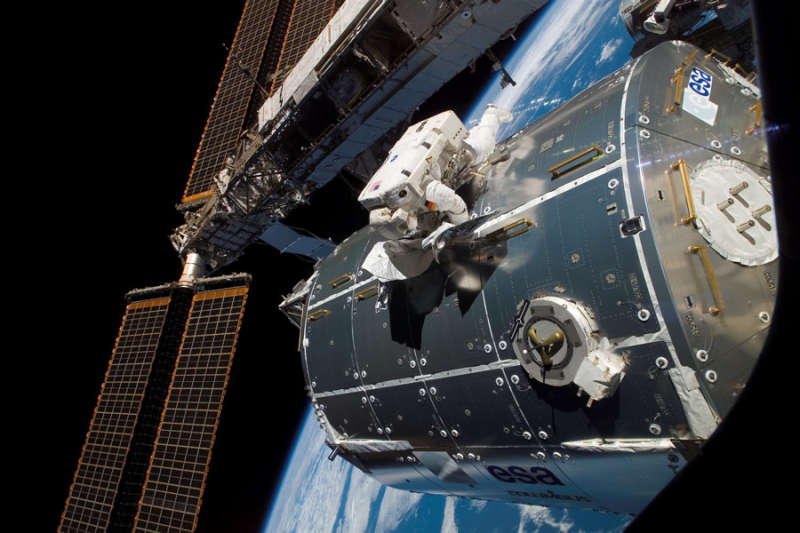Explanation: The International Space Station (ISS) has been equipped with a powerful new scientific laboratory. The Space Shuttle Atlantis delivered the Columbus Laboratory to the ISS and installed the seven meter long module over the past week. Columbus has ten racks for experiments that can be controlled from the station or the Columbus Control Center in Germany. The first set of experiments includes the Fluid Science Laboratory that will explore fluid properties in the microgravity of low Earth orbit, and Biolab which supports experiments on microorganisms. Future Columbus experiments include an atomic clock that will test minuscule timing effects including those expected by Einstein's General Theory of Relativity. Pictured above, mission specialist Hans Schlegel works on the outside of Columbus. Scientists from all over the world may propose and carry out experiments to be done on the laboratory during its ten year mission.
Watch the
Total
Lunar Eclipse the night of Feb. 20/21.
1999 2000 2001 2002 2003 2004 2005 2006 2007 2008 2009 2010 2011 2012 2013 2014 2015 2016 2017 2018 2019 2020 2021 2022 2023 2024 2025 2026 |
Yanvar' Fevral' Mart Aprel' Mai Iyun' Iyul' Avgust Sentyabr' Oktyabr' Noyabr' Dekabr' |
NASA Web Site Statements, Warnings, and Disclaimers
NASA Official: Jay Norris. Specific rights apply.
A service of: LHEA at NASA / GSFC
& Michigan Tech. U.
|
Publikacii s klyuchevymi slovami:
international space station - Mezhdunarodnaya kosmicheskaya stanciya
Publikacii so slovami: international space station - Mezhdunarodnaya kosmicheskaya stanciya | |
Sm. takzhe:
Vse publikacii na tu zhe temu >> | |
